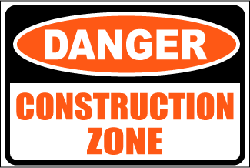Learning the basic rules of sentence construction will help you identify the parts of a sentence that make up the whole. This will help you to avoid punctuation errors like comma splices, as well as give you the knowledge to create more complicated sentence structures, which will improve the style of your writing.
Phrases
A phrase is a group of words that form a single unit in a sentence, but do not include a subject, or a verb, or both. Since a phrase does not have a subject and/or verb, it does not form a complete idea or thought. Since a phrase does not contain a subject or verb, it cannot stand alone as a sentence, and is considered a fragment.
Examples of phrases:
- closing the door
- under the tree
- because of his illness
- running past the gate
In the previous examples, you’ll see nouns (door, tree, illness, gate) and verbals – or forms of a verb (closing, running) – but the nouns are not functioning as the subject of a sentence, and the verbals have no subject performing the action.
Types of Phrases:
- Noun: his brand new bike; the stinky old cat
- Prepositional: over the wall; in the bedroom
- Verb: will be done; can swim
- Verbal: There are 3 types of verbal phrases: participial, gerund, and infinitive.
Participial: The pond, frozen over since early December, is now safe for ice-skating.
Gerund: Cramming for tests is not a good study strategy.
Infinitive: My goal is to be a teacher.
Absolute: I stood on the dock, the lake breeze chilling me to the bone.
Appositive: The book, a 600-page biography, received great reviews.
Clauses
A clause is a group of words that contain a subject and a predicate. A predicate is a word or phrase that describes the action or state of the subject. Predicates always includes verbs.
Unlike a phrase, a clause can be a complete sentence – if it has a subject and a predicate. This type of clause is called an independent clause, as it can stand alone independently, with no other words or phrases needed to make it a complete sentence.
Examples of independent clauses:
- Fried green tomatoes are popular in the South.
- The door remained closed.
- The car sounded noisy.
- I stood on the shore.
Unlike an independent clause, a dependent clause cannot stand alone as a sentence, even though it has a subject and a verb. A dependent clause is dependent on an independent clause as part of either the subject or the predicate.
Examples of dependent clauses:
- while the wind was blowing.
- which I made by hand.
- although the room was cold.
- because the pool was deep.
These examples begin with subordinate conjunctions – while, which, although, because – so do not form a complete thought. When we see subordinate conjunctions at the beginning of sentences, we expect extra information to complete the thought. These dependent clauses require other words to make a complete sentence.
Troubleshooting
Recognizing phrases and clauses will help you to avoid comma splices, fragments and run-on sentences. Look at the sentences below and identify which are complete sentences, and which are incomplete sentences. Can you identify the phrases and clauses?
- Driving across town in rush hour traffic.
- My head pounding.
- I answered the door.
- Talking on a cell phone in a restaurant.
- Call the babysitter.
- Because he wanted to.
- I stood silently.
- In the darkest corner of the room.
- To go to bed after midnight.
- Loud singing from the back of the room.






